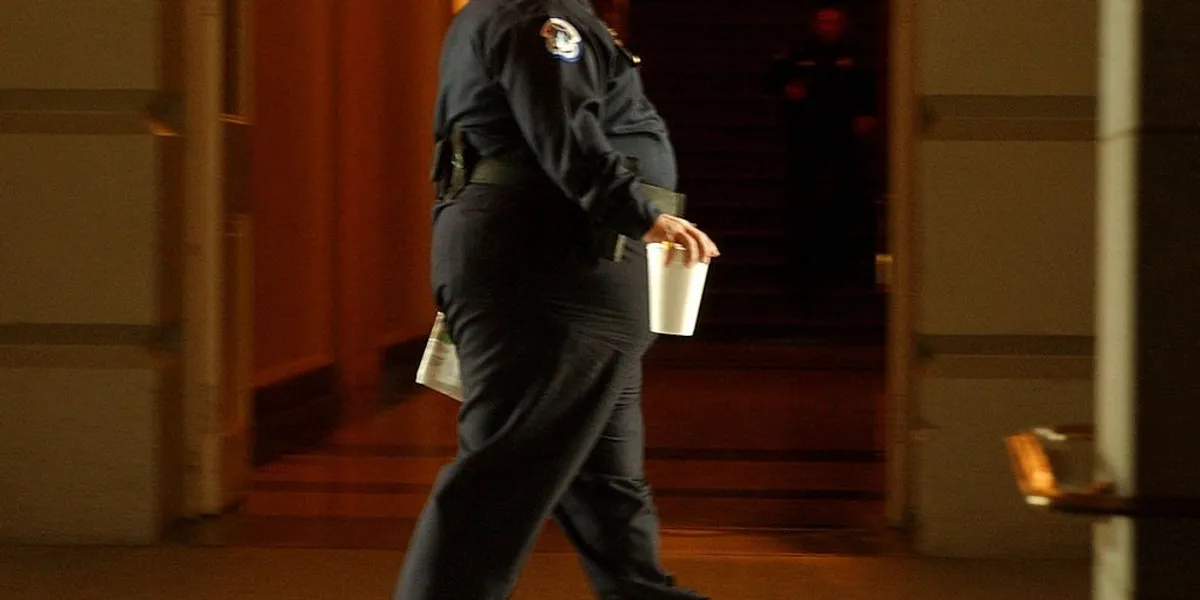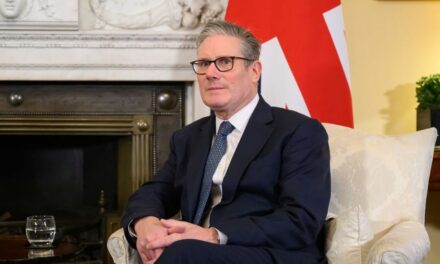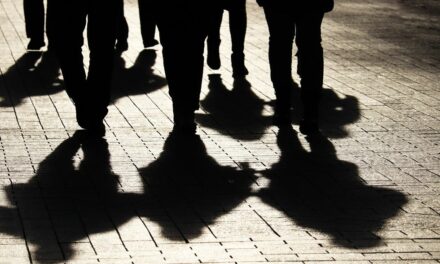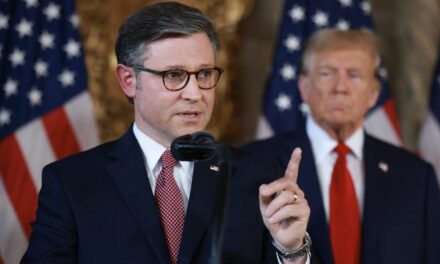We support our Publishers and Content Creators. You can view this story on their website by CLICKING HERE.

America’s police forces are in a dire state. Not just in terms of recruitment but in terms of quality.
The crisis transcends numbers; it strikes at the heart of the institution’s ability to keep Americans safe. Joe Rogan recently hosted John McPhee, the “Sheriff of Baghdad,” on his podcast.
One of my closest friends, a member of the NYPD, has shared with me the unbelievable nonsense that has unfolded in the post-George Floyd years — stories that reveal just how dire the situation has become.
The retired special ops soldier delivered a sobering indictment of U.S. law enforcement.
McPhee, who now focuses on training police and civilians, highlighted systemic failures, from fitness to training, that jeopardize both officers and the public. Although he was contacted for comment prior to the publication of this article, he did not respond.
That said, one doesn’t need to be a grizzled, gun-slinging guru to see the elephant in the room.
The thickening blue line
A staggering 40% of American police officers are obese. Not just overweight — obese. It’s a sobering reality for those entrusted with the duty to protect and serve. When officers cannot pursue a suspect, subdue an attacker, or endure the physical demands of their work, it fundamentally undermines the notion of public safety.
Obese police officers not only heighten the risk of injuries but also increase the likelihood of relying on excessive force. When stamina or strength is lacking, officers may feel compelled to resort to extreme measures, such as prematurely using deadly force.
An example is the case of Parker v. District of Columbia, as part of which an officer’s poor physical fitness directly led to a serious incident. Officer Hayes, unable to pursue a fleeing suspect effectively, resorted to using his firearm, causing severe injuries to the suspect. The court determined that the officer’s physical condition, exacerbated by insufficient fitness training, left him with no viable non-lethal options.
Contrary to the delusional beliefs of the fat positivity movement, there’s nothing “positive” about lugging around bucketloads of fat. Santa Claus aside, the idea of the jolly fat man is pure fiction. And Saint Nick is only cheerful because he punches in one day a year.
Obesity doesn’t just weigh down the body; it crushes the mind too. It’s a breeding ground for depression, anxiety, and chronic stress, all of which wreak havoc on judgment and decision-making. Studies reveal that obesity dulls executive function and fuels impulsivity, turning high-pressure moments into fertile ground for bad decisions.
Obese officers often report simmering anger and frustration, a cocktail mixed from their physical struggles and society’s not-so-subtle disdain.
No respect
Moreover, respect plays a crucial role in the profession of policing. Officers rely on public cooperation, trust, and authority to perform their duties effectively, whether it’s calming a tense situation, issuing commands, or establishing credibility in court. However, societal biases often complicate this dynamic, especially when it comes to physical appearance — and obesity is a significant factor.
Studies consistently show that obese individuals face widespread discrimination, both overt and subtle. They are often perceived as less competent, less disciplined, and even less authoritative. These perceptions stem from deeply ingrained stereotypes associating weight with laziness or a lack of self-control — traits that directly conflict with the image of a disciplined, reliable police officer.
Consciously or unconsciously, people think, “How can this officer protect me and my loved ones when they can’t even resist the magnetic pull of a McDonald’s drive-thru?”
While we can debate the fairness of such biases, they are deeply rooted in human psychology and social conditioning. In other words, they exist — and they’re not going anywhere anytime soon. An obese officer might struggle to convey that same sense of preparedness or capability in the eyes of the public, regardless of their actual skills or expertise.
Tough love
To be clear, this isn’t an attack on officers themselves. They perform an invaluable service, often risking their lives to maintain the delicate balance of order and security in our communities. Without their dedication, society would descend into chaos.
But in a profession where lives hang in the balance, anything less than the highest standard is a dangerous compromise. Officers, like everyone else, must take responsibility for their own physical fitness — a point so basic it shouldn’t even be controversial.
I sympathize with officers, who are often victims of systemic failures that leave them woefully unprepared for the intense demands of their roles. Law enforcement professionals operate under immense pressure, but the lack of meaningful support for their physical and mental health only deepens the challenges they face every day.
One of my closest friends, a member of the NYPD, has shared with me the unbelievable nonsense that has unfolded in the post-George Floyd years — stories that reveal just how dire the situation has become. Officers are drowning in pointless training sessions and mountains of paperwork, distractions that keep them from doing the job they were hired to do: protecting the people of America.
99 problems
The police force problem begins with woefully inadequate training systems. As McPhee observed, police academies often obsess over bureaucratic trivialities while neglecting essential real-world preparation.
Officers step into the field ill-equipped to handle life-or-death situations with the nuance and skill required. Training in critical areas such as de-escalation, hand-to-hand combat, and tactical decision-making is often minimal, leaving officers to navigate high-stakes encounters without the necessary tools.
Compounding the issue is the rigid structure of police departments. Unlike the military, which assigns roles based on individual strengths, law enforcement clings to a one-size-fits-all model. Officers with widely varying abilities are tasked with the same duties, whether patrolling neighborhoods or responding to active threats.
Why not assign the fitter, stronger, sharper officers to patrol the streets while those less mobile focus on desk work where they can still contribute effectively?
McPhee believes that, with proper training, the need for specialized SWAT teams could be eliminated entirely.
He told Rogan that, if trained correctly, every officer would possess the fitness, tactical precision, and decision-making skills typically reserved for elite units.
Today’s reliance on SWAT teams is a symptom of broader systemic failure. Regular officers are so poorly prepared that specialists are required for situations that should fall within the scope of standard policing. Proper training would empower officers to handle everything from high-stakes emergencies to routine calls with the same level of professionalism.
A need for change
Reform isn’t just possible; it’s already being implemented successfully in other countries. Finland and Norway set the gold standard with rigorous training programs that span years and emphasize legal knowledge, physical fitness, and de-escalation techniques. These nations produce officers who are not only better equipped but also earn greater trust from their communities. Even Australia has embraced reform, focusing on fitness, tactical readiness, and ongoing professional development.
Yes, some may argue, “America is not Australia, and it’s certainly not Finland.” True enough.
But like Australia and Finland, America’s police force is made up of humans — individuals entrusted with the critical duty of protecting and serving the public. The path to a better, faster, sharper, stronger police force isn’t rocket science. It’s about prioritizing smart training, embracing reform, and holding the system — not just the individuals within it — to a higher standard. Anything less is an abdication of responsibility to both the officers and the communities they serve.
It’s time to MAGA — “Make Authority Great Again.”

 Conservative
Conservative  Search
Search Trending
Trending Current News
Current News 







